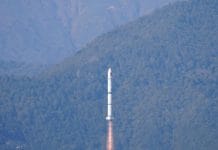In line with international best practices and to expand the tax base, the Government introduced the Capital Gains Tax (CGT) in Budget 2024.
Speaking at the Launch of Bursa Malaysia’s New Logo In Conjunction with the Introduction Of Bursa Gold Dinar today (Jan 16), Finance Minister II Senator Datuk Seri Amir Hamzah Azizan said the scope for CGT focused on gains from the disposal of unlisted shares by companies. Disposals of listed shares and disposals by individuals are not subject to CGT.
“Through the various engagements we’ve had on this matter, it has come to our attention that one unintended area impacted by CGT is unit trusts, given that more than 90% of unit trust holders are individuals.”
“I want to assure you that this Government values feedback and engagements. I am pleased to announce that the Government has agreed to exempt the imposition of Capital Gains Tax as well as taxes on Foreign Sourced Income (FSI) on Unit Trusts. This is to ensure that the rakyat will continue to benefit wholly from the gains of their hard-earned money, and invest for their future,” he said.
The exemption on FSI takes effect from 1 January 2024 until 31 December 2026. Meanwhile, the exemption on CGT is effective from 1 January 2024 until 31 December 2028.
Bursa Malaysia’s Launches New Logo In Conjunction With Introduction Of Bursa Gold Dinar, MyBURSA Customer Portal and BURSA REACH.
The capital market plays an important role in growing the Malaysian economy. As a key driver of economic growth, the capital market provides businesses with access to financing and enables people to invest for their future.
In his keynote address Amir Hamzah said, since last year, the Ministry of Finance has been working with the Securities Commission Malaysia, with feedback from Bursa Malaysia and capital market players, to identify both short-term and medium-term measures across three pillars to enhance the capital market.
To drive greater economic growth, inclusion and sustainability, these three pillars aim to:
• One, create market vibrancy with greater participation opportunities for the rakyat;
• Two, attract a larger pool of investors to support financing for SMEs and the New Economy ; and
• Three, implement market and structural reforms to enhance Malaysia’s competitiveness to strengthen market confidence.
Amir Hamzah said reforms require discipline and patience. Reforms also require confidence and courage to do new things and make difficult decisions for the long-term benefit of the people and the nation—actions that the MADANI Government has already taken steps to do.
“Malaysia’s economy is at a key pivot point. Malaysia has been guided by various economic visions. All aspired to fortify Malaysia’s economic prowess and mould her into a developed nation. We have achieved remarkable economic growth – yet evidently, much more needs to be done.
The Ekonomi MADANI framework launched by Prime Minister Dato’ Seri Anwar Ibrahim in July last year aims to redress this glaring error in the post modern economic and social development. While it is integral for Malaysia to “raise the ceiling” of her economic potential, it is equally important for the enlarged wealth to be distributed equitably by “raising the floor” of the rakyat’s living standards.
Ekonomi MADANI emphasises intangible values such as inclusiveness, good governance, and social justice — invariably, the ingredients to economic sustainability that have been missing all this while. As a holistic framework, Ekonomi MADANI requires us to undertake structural reforms in all dimensions — from legal and institutional, to economic and financial, education, social, and cultural.
While the Government initiates these reforms, this vision – or social contract, if you will – can only be realised when all members of the Malaysian society act collectively as change agents to see it through.
What started out as a stock exchange operator six decades ago, Bursa Malaysia has diversified its offerings over the years to various asset classes to cater to a wide breadth of investors of all risk profiles and demographics. The transformative journey of Bursa Malaysia, in embracing innovation and diversifying its offerings (to be a multi asset exchange), is to be commended.
When Bursa Malaysia launched what was then known as the Kuala Lumpur Shariah Index in 1999, it opened doors for a new set of investors and broke grounds on investments permissible under Islamic principles. As the years went by, the shariah screening standards were refined, while new products and indices were introduced to meet investors’ fluxing demand.
In recent times, Bursa Malaysia launched the world’s first shariah-compliant voluntary carbon exchange. In one fell swoop, Bursa Malaysia again became a trailblazer in shariah investing, as well as a proponent for environmental, social, and governance (ESG) initiatives.
The new Bursa Malaysia logo hopes to mark the resurgence of Bursa Malaysia as it marches forward to uphold its responsibility to make Malaysia’s capital markets more inclusive, innovative, vibrant, and operated with the highest level of integrity.
In addition, the three products that will be concurrently launched today are designed to bridge the inequality in financial inclusion and market information. And thereby fulfil Ekonomi MADANI’s vision and missions to empower the rakyat.
The first, the Bursa Gold Dinar, is an app-based digital investment platform backed by real gold bars and coins. True to Ekonomi MADANI’s mission to further elevate Islamic economy, this platform provides shariah-compliant investment that all strata of the rakyat can participate in and build their financial security.
This will not only open up new investment opportunities, but also the door to economic inclusivity, where every layer of society, regardless of economic status, has access to viable investments.
As the nation evolves and progresses, Malaysians need enabling tools to support their value creation. The other two platforms launched today, MyBURSA and BURSA REACH will open up more investment and trading opportunities for more Malaysians.
Indeed, said Amir Hamzah, the role of the capital market in driving economic growth. The Government will continue to make capital market investments in Malaysia rakyat-friendly.
The reforms initiated by the MADANI Government are yielding green shoots. The Ekonomi MADANI framework has provided a clear roadmap to propel Malaysia to a higher economic value chain, and breathed confidence into global investors.
In the first nine months of 2023, Malaysia secured RM225 billion in approved investments. This represents a 6.6% increase from a year earlier, bringing it to the highest amount for the corresponding period over the past decade.
This indicates that investors have responded well to the Ekonomi MADANI vision, along with the supporting policy documents, namely the National Energy Transition Roadmap (NETR), the New Industrial Master Plan 2030 (NIMP), and the Mid-term Review of the 12th Malaysia Plan.
The economic framework, along with the policy documents, demonstrate the Government’s commitment to elevate Malaysia’s position in the global supply chain and embolden our businesses’ ESG values.
In the coming months and years, the Government will see through the execution of these policy documents and ensure that Ekonomi MADANI’s vision will become a reality.
Despite the external volatility posing downside risks, the Government is projecting Malaysia’s economy to grow by 4% to 5% in 2024. This is underpinned by the Government’s diligent efforts to bolster domestic demand and generate more investments into the country.
Indeed, the capital market is poised to play an important role in driving Malaysia’s next stage of economic growth, led by the Ekonomi MADANI framework. The NIMP requires RM95 billion in investments, of which roughly RM87 billion (91.4%) will come from private sector funding.
Meanwhile, the NETR anticipates that Malaysia will require an investment of RM1.2 trillion to RM1.3 trillion by 2050, he added.









